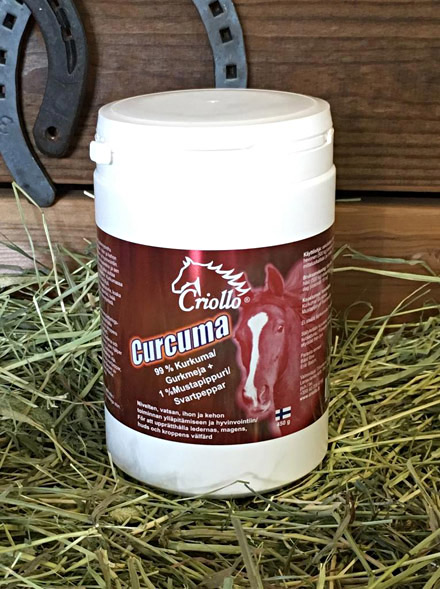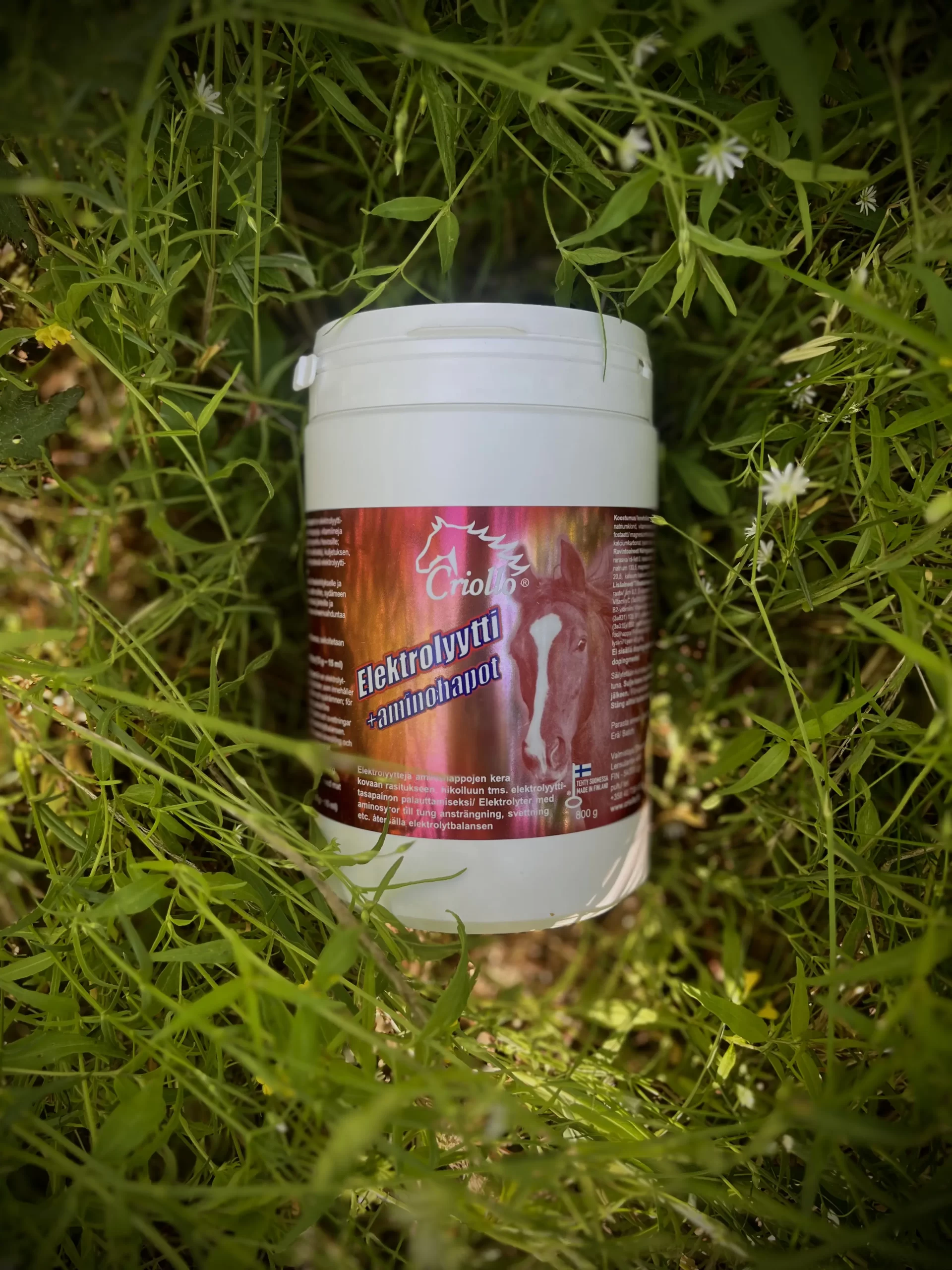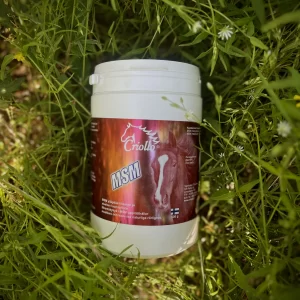Electrolyte+Amino Acids
Price range: 20,95 € through 47,95 €
Criollo Electrolyte + Amino acids is a powdered electrolyte preparation: a supplemental feed for horses containing plenty of electrolytes, amino acids, vitamins and trace elements; in connection with hard exercise (also before exercise), transport, fever, diarrhea and sweating to restore the electrolyte balance.
Exertion and disruption of fluid balance increase the need for magnesium, potassium, sodium, chlorides and vitamins.
No doping caution period!
Composition:
dextrose, sodium chloride, vitamin mixture, magnesium phosphate, calcium carbonate, lysine, methionine
Nutrients g / kg:
protein 2,5
fat 0
raw fibre 3,5
ash 5,5
sodium 133,5
magnesium 3
chlorides 222
potassium 20,5
calcium 2,5
phosphorus 3
Additives mg/kg:
manganese 3
iron 8,3
vitamin E (3a700) 755
vitamin C (3a300) 2475
vitamin B1 (3a821) 80
vitamin B2 150
vitamin B6 (3a831) 105
vitamin B12 0,25
niacin (3a315) 550
pantothenic acid (3a841) 470
folic acid (3a316) 15
methionine 5 g/kg
lysine 40 g/kg
Instructions for use:
Administered as needed, mixed with feed or drink.
Horse (500 kg) 2 - 4 measures (13 g ~ 15 ml)
Sodium, chlorides, magnesium and potassium are very important in energy production, nervous and muscle functions and muscle recovery.
Eelectrolytes (potassium, chloride and sodium) and adequate hydration ensure optimal cellular metabolism; they contribute to the horse's performance. During heavy exertion, transport, fever, diarrhoea, stress and sweating and in high temperatures, the horse loses a lot of electrolytes. The metabolism of the muscle cells slows down and thus the function of the muscles also slows down. The lack of electrolytes can be seen as nervous disorders and muscle problems: e.g. as muscle cramps, muscle pain and fatigue. After heavy exertion and profuse sweating, it is important to restore the body's electrolyte balance; lost electrolytes must be replaced! Dextrose together with electrolytes enhances water absorption and thus also speeds up recovery.
Important essential amino acids are lysine and methionine, which the body cannot produce by itself, but these amino acids must be obtained from food. Lysine is important for muscle development and its effect is also on the arteries, heart and blood vessels. Methionine is important for tendons and connective tissues and enhances fat metabolism and removal of waste products. Carnitine is formed in the body from lysine and methionine, which in turn strengthens performance, helps in recovery, enhances fat metabolism and has a strong effect on strengthening the heart and blood vessels.
Vitamin E (antioxidant) is very important for muscle functions and especially in stressful situations, protecting against damage and is also very important for the transport of fatty acids.
Vitamin C (antioxidant) affects the absorption of other vitamins and is the so-called general fitness vitamin.
B vitamins are needed for the generation of energy in the muscles and for the repair of muscle tissue damage caused by stress:
- Vitamin B1 is needed for the utilization of energy obtained from carbohydrates.
- Vitamin B2 plays an important role in muscle energy production and protein and fat metabolism.
- Vitamin B6 has an important effect on the body's fluid balance and the nervous system, and it also promotes protein and fat metabolism and the absorption of food.
- Vitamin B12 is needed in energy metabolism and in the production and regeneration of red blood cells. Vitamin B12 is essential.
- Niacin affects the metabolism of fatty acids and also dilates blood vessels and is therefore important for the functioning of the blood circulation and nervous system and is necessary for the metabolism of carbohydrates and proteins.
- Pantothenic acid promotes the metabolism of carbohydrates, proteins and fatty acids in the body, promotes energy metabolism, it also maintains and repairs cells, folic acid also plays its part in the production and breakdown of essential fatty acids.
- Folic acid is essential for tissue growth and regeneration and red blood cell formation. Energy production and protein metabolism also need folic acid.






